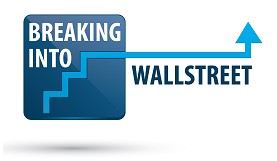 Trading can be a very profitable and lucrative business. It can also bring billions in losses when it’s not properly monitored.
Trading can be a very profitable and lucrative business. It can also bring billions in losses when it’s not properly monitored.
If you are looking to become a big shot trader one day, then it’s important that you understand one very important type of trader:
The Rogue Trader.
The Rogue Trader is the epitome of everything that can go wrong with trading, extending from huge losses to even jail time. We begin our cautionary tale by examining three of the most infamous rogue traders of all-time: Nick Leeson, Jerome Kerviel, and Kweku Adoboli.
Afterward, we take away three key lessons that you can use to make sure your trading career doesn’t end up with your name next to Nick Leeson’s.
Going rogue starts now …
Bankrupt a Bank, Get Ewan McGregor to Play You in a Movie?
Nick Leeson’s career began without a university degree in small roles at a private bank, Morgan Stanley, and then eventually Barings Bank. At the time, Barings was the UK’s oldest investment bank having been founded in 1762.
Through some feat of astounding career progression, Nick Leeson was able to convince Barings to send him to Singapore to startup the bank’s trading operations on the Singapore International Monetary Exchange (SIMEX) at the tender young age of 25.
Nick Leeson quickly started making unauthorized speculative trades to try to drive his P&L. At first he was lucky enough to generate some decent gains. Unfortunately, his luck quickly headed south as he started accumulated losses.
Instead of facing the music on his losses, though, Mr. Leeson used one of Barings’ error accounts to hide his losses. Since Barings allowed him to trade and settle his trades, there was no one around to see the losses. By the end of 1994 Leeson had racked up than ₤200M in losses.
Nick Leeson’s position was precarious, at best, and things were about to get worse.
On January 16, 1995, Leeson placed a short straddle bet on the Singapore and Tokyo stock exchanges. He was effectively betting that the markets wouldn’t make a big move up or down overnight.
In an example of perhaps the worst trading luck ever, the Kobe earthquake hit early the next morning and sent stocks into a nose dive. Nick Leeson got his face ripped off by tempting fate and Mother Nature.
Over the next few weeks, Leeson placed even riskier bets hoping to recoup his losses. Unfortunately, nothing worked and Leeson fled Singapore after amounting losses totaling ₤827M ($1.4 billion!). This was twice the amount of trading capital that Barings had for the entire company! It was quickly discovered that the losses were too much for Barings to handle, so the entire company entered bankruptcy because of one trader’s losses.
A 232 year old bank was brought down by a 27-year-old trader.
After bouncing from Malaysia to Thailand to Germany, Nick Leeson was eventually arrested and extradited back to Singapore where he would be sentenced to prison for 6 years after pleading guilty to what basically amounted to fraud (for intentionally hiding the losses).
Of course, like many other infamous criminals in the history books, Leeson was able to parlay his new-found infamy into an autobiography that he wrote while in prison. In 1999, the book was even made into a movie starring Ewan McGregor and Anna Friel called Rogue Trader.
Not bad for a guy who lost $1.4 billion.
L’engrenage: The Downward Spiral
It has always been difficult for back-office staff to make the leap to the front office. Unfortunately, Jerome Kerviel might have made it even harder for every back office employee after him to make the leap.
Kerviel went to a non-target school where he received a Master of Finance in organization and control of financial markets. It’s effectively a program that prepares students for back office roles at financial institutions, which is exactly what Kerviel did in 2000 when he joined Societe Generale (SocGen) in the compliance department.
Five years later, Kerviel made the jump to trading when he was promoted to the Delta One desk. The Delta One desk sounds exotic, but it actually makes rather vanilla trades in complex securities. These traders are supposed to be picking up singles and doubles instead of swinging for the fences.
Apparently the low risk trades on the Delta One desk weren’t enough for Kerviel. He began making unauthorized trades and covered them up with fake, offsetting trades thanks to his back office knowledge. The trades kept ballooning until, according to SocGen, they had totaled €49.9B in exposure … or more than SocGen’s entire market cap!
When SocGen discovered the unauthorized trades, they closed out the trades for an estimated loss of €4.9 billion ($7 billion).
Kerviel claims SocGen knew about his trades, but he was nevertheless charged and convicted of “abuse of confidence and illegal access to computers” and ordered to repay the billions he lost.
Good luck collecting that money, SocGen.
Delta One Strikes Again
Kweku Adoboli was born in Ghana but moved to the UK at the age of 11 where he excelled at school. After graduating university, Adoboli spent three years working as a trade support analyst before joining the Delta One desk where he specialized in ETFs.
Just as with Kerviel, Adoboli started taking bigger and bigger speculative bets in what is supposed to be a rather low-risk trading group, not a high-risk prop trading desk. And, just like Kerviel, Adoboli started using fictitious trades (forward-settling ETF positions) to hide his trades.
Once again, fictitious trades were used to offset real trades in order to fool the risk management systems that are designed to prevent such losses from occurring. The damage wrought by Adoboli resulted in $2.3 billion in trading losses as well as the resignation of UBS’s CEO.
Once UBS finally got around to discovering a trader lost them $2.3 billion (apparently thanks in part to the Swiss National Bank devaluing the Swiss franc, which blew up Adoboli’s trades), Adoboli posted on his Facebook one simple plea: “I need a miracle.” Unfortunately for Mr. Adoboli, there was no miracle that came to knock on his door, instead it was the London police.
Delta One strikes again. Do risk management systems ever learn?
Oh yeah, and did I mention Adoboli’s law firm? Kingsley Napley – the law firm that advised Nick Leeson. And now we’ve come full circle …
What Does this All Mean for You?
Now that we have some background on some infamous rogue traders, you’re probably wondering what this all means for you. The obvious lesson is “don’t make unauthorized trades,” but there is more. Here are some lessons that you can take away to help your career:
Always Remember there’s a Thin Line Between Saturday Night and Sunday Morning
The cutthroat world of Wall Street rewards aggressive behavior. Outperformers win. Anyone who tells you otherwise is an underperformer and they can’t admit it.
However, there’s a thin line between being aggressive and being unethical. Unless you are independently wealthy and make a living purely from managing your own money, you are trusted with managing OPM – Other People’s Money.
Trust is what makes Wall Street work. Bear Stearns failed in part because hedge funds started pulling business and fellow banks refused to lend credit in light of Bear Stearns’ subprime exposure. Trust in Bear Stearns was lost and the bank quickly ceased to exist as a result.
In interviews, you need to portray yourself as someone who is a go-getter that who can also be trusted. If you come off as a sleazy, aggressive-type, don’t expect to be hired for your good looks.
Accept Failure in Order to Survive
If these rogue traders had simply raised their hand and admitted their first few losses, all three would have probably received a measly slap on the wrist. Instead, they covered up and proceeded to turn a slap on the wrist into criminal charges.
Whether you are a trader or a buy side analyst, trades and investment recommendations will go against you. You can build the greatest, most sophisticated financial model ever that tells you to buy stock XYZ and that trade can still go against you. Shit happens.
No one is perfect. Investment losses happen … a lot. You goal is to be a bit like a casino – the odds are tilted just slightly in the house’s favor which turns into a massive advantage over the long run.
If you want to enjoy a long career, not a short one that ends in prison, learn to accept losses and move on. Resilient investors and traders succeed in the long-run.
Tell the Truth … Always
Tell me if this sounds familiar: You have a gap in your résumé that you’d rather not talk about. There’s a low GPA, a gap in your employment history, a lack of experience, etc.
It’s tempting to try to take normal resume embellishment a little further and fib the truth just a little to fill in the gap.
Don’t do it.
Remember how the world of finance is based on trust? Don’t start off your career by immediately losing it. Employers will check into your credentials.
Would you rather be the person with lacking credentials or the one who lies about their credentials?
Through hard work and networking, the first person can find a job somewhere. The second person will never be hired anywhere.
And finally, don’t make unauthorized trades. Did I say that already? Alpha or fraud – it’s your choice.



..And never ever take a holiday if you are trying to hide something.The Japanese copper trader got caught out like that for US 5 billion.Poor guy,first holiday in 5/7 years and that`s what he got!Funny how they rarely profit from this.
Mike,how hard is the AM/HF side being hit by all these layoffs?Traditionally more IB guys suffering or is there a set target and head count irrespective of division?Would the carnage differ from buy-to-sell side?
For the established shops, AM/HF have largely been spared mass layoffs (the margins are generally good and can absorb a drop in AUM). For shops with performance problems, the downturn can be harsh as assets leave and a downward spiral ensues. That phase is largely over, though. Today I see a lot of musical chairs going on at more senior levels, with a small amount of net hiring at the more entry level. Sell side is similar, but commissions are down so it’s a little worse.
Very interesting article – thanks for the great read!